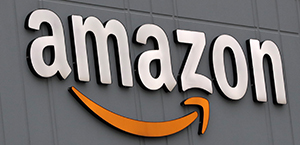
Investing for the long-term means tapping into the enduring trends that will drive the world for decades to come. Some of the most important themes have been accelerated under the Covid-19 crisis creating a multitude of opportunities for investors. Here are four themes to consider:
Robotics & AI
Robotics has been on a continuous growth path since its invention in the 1960s. But much its capabilities have so far only been deployed in the consumer electronics and auto industries.
Peter Lingen, senior investment manager of Pictet-Robotics, expects the adoption of robotics to broaden substantially in the coming years, a trend that could be accelerated with social distancing measures.
One of the most appealing aspects of using such technologies, he says, is saving on costs while still have an efficient production line. So-called Collaborative Robots - or cobots - are a good example, he says: "Cobots are cheap, easy to deploy and work side-by-side with people in the modern factory. They are a good complement to traditional industrial robots."
He expects the use of these cobot to spread to many different sectors and technologies, a trend that should benefit Teradyne,
Lingen also expects companies in many different sectors to start using cobots and other automation technologies as they move production out of China. “Through our position in Teradyne (TER), we own the leading global manufacturer of cobots, Universal Robots, as well as some of the traditional robotics manufacturers such as Fanuc and Yaskawa,” he says.
Meanwhile Karen Kharmandarian, manager of the Natixis Thematics AI and Robotics fund, says another benefit of investing this theme, aside from its future growth, is that it has been underexposed to those sectors that have suffered most in the recent downturn, such as financials and energy. She says: “AI and robotics have benefited from a flight to quality. The trend mainly consists of companies with superior and visible long-term growth and very strong financial profiles overall with net cash on the balance sheet.”
Subscriptions
When we think about the subscription economy, we might first think about video and music streaming but actually the investment universe is much larger than that. From our mobile phone plans to gym memberships, subscription models are embedded in our lives.
Costco Wholesale (COST), is one example; a club warehouse where to access the warehouse - essentially just a shopping mall - you need to be a member and pay an annual subscription. HelloFresh (HFG), meanwhile, is a meal kit delivery company that deliver ingredients and recipes for the whole family every week for a regular fee.
Software companies have seen the benefits of this pricing model and many have transitioned to it in recent years. Microsoft Office, which used to be a one-off purchase of a disc, for example, is now a subscription to a cloud-based version of the software. The customer benefits from regular updates and the business benefits from a reliable, sticky revenue stream.
Nolan Hoffmeyer, manager of the Natixis Thematic Subscription Economy fund, says: "Companies selling subscriptions get recurring revenue and don't need to drive new sales. It means it's almost impossible for revenue to plummet to zero in a quarter.”
He adds: “And if you look at the younger generation, they don't necessarily want to own things, but they want to use things. So why own a DVD If you can just watch the movie without owning the DVD?"
Safety
Safety is everywhere - particularly in the current crisis - and is a top priority for company bosses and governments, as well as individuals. Matthieu Rolin, co-Manager of the Natixis Thematics Safety fund, invests in products and services that tap into this trend.
But safety doesn't just mean hard hats and PPE, it is about protecting ourselves in the digital world, too. Rolin invests in data centres, server security and cyber insurance companies and security chip makers, but also in companies that relate to digital payments. “We want to benefit from this transition from cash to digital payments,” he says.
Safety is a resilient trend in which to invest, says Rolin; a company will almost never cut spending in safety: “Just imagine we are in a recession, companies have to cut spending because revenue is going down but you will see that spending on safety is the last thing that they will cut.”
He adds. “If a company network gets hacked because it decided to cut cyber security spending, the reputation of the company is destroyed and that's something company bosses want to avoid at whatever the price”
He likes companies such as Thermo Fisher (TMO), which develops test kits to detect the Covid-19 virus. Producing 5 million tests a week, it is the largest producer of coronavirus tests in the world. He also likes Rollins (RLS), the US leader in pest control, which has just created a new disinfectant service called Vital Clean. “We see companies are adapting to the situation and try to bring answers to the Covid crisis,” adds Rolin.
Water
The word commodity may make investors think of gold or oil, but water may in fact be more precious than any of these. Simon Gottelier, co-manager of the Natixis Thematics Water fund, believes that investment in water infrastructure is going to increase, particularly in emerging markets, as well as spending in flood and drought mitigation technology.
He invests in companies as diverse as water smart residential irrigation companies, lab testing businesses, waste management companies, regulated utilities and concessions companies from the US and the UK, through to Brazil and China.
In particular he likes UK groups such as Pennon (PNN) or a US utility such as American Water Works (AWK) because they “have really sort of displayed reassuringly defensive characteristics.”
“Water is absolutely everywhere in our lives, is intertwined with all that we do, all the time,” says Gottelier. “Whether it's in a power station cooling tower or the use of ultrapure water for semiconductor manufacturing, the flow, treatment, collection and use water is absolutely essential and requires constant attention and ultimately investment.”




























